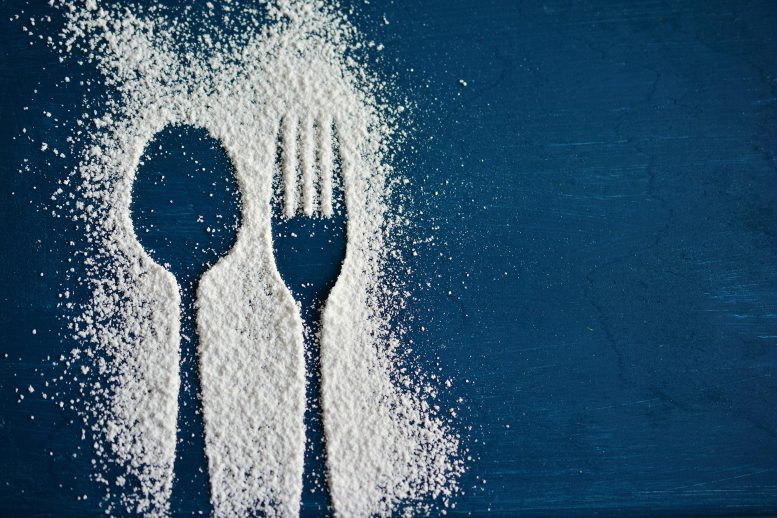
The sweet taste of sugar, energy intake and the regulatory process of hunger and satiety.
The sweet taste of sugar is very popular worldwide. In Austria and Germany, the yearly intake per person adds up to about 33 and 34 kilograms (73 to 75 pounds), respectively. Thus, sugar plays an increasing role in the nutrition and health of the population, especially with regard to body weight. However, little is known about the molecular (taste) mechanisms of sugar that influence dietary intake, independently of its caloric load.
Taste Receptor and Satiety Regulation
“We, therefore, investigated the role of sweet taste receptor activation in the regulation of satiety,” says Veronika Somoza, deputy head of the Department of Physiological Chemistry at the University of Vienna and director of the Leibniz Institute for Food Systems Biology at the Technical University of Munich.
For this purpose, the scientists conducted a blinded, cross-over intervention study with glucose and sucrose. A total of 27 healthy, male persons, between 18 and 45 years of age, received either a 10 percent glucose or sucrose solution (weight percent) or one of the sugar solutions supplemented with 60 ppm lactisole. Lactisole is a substance that binds to a subunit of the sweet receptor and reduces the perception of sweet taste. Despite different types of sugar, all solutions with or without lactisole had the same energy content.
Two hours after drinking each of the test solutions, the participants were allowed to have as much breakfast as they wanted. Shortly before and during the 120-minute waiting period, the researchers took blood samples in regular intervals and measured their body temperature.
Additional 100 Kilocalories on Average
After the consumption of the lactisole-containing sucrose solution, the test persons had an increased energy intake from breakfast of about 13 percent, about 100 kilocalories more, than after drinking the sucrose solution without lactisole. In addition, the subjects of this group showed lower body temperature and reduced plasma serotonin concentrations. Serotonin is a neurotransmitter and tissue hormone which, among other things, has an appetite-suppressing effect. In contrast, the researchers observed no differences after administration of the lactisole-containing glucose solution and the pure glucose solution.
“This result suggests that sucrose, regardless of its energy content, modulates the regulation of satiety and energy intake via the sweet taste receptor,” says Barbara Lieder, head of Christian Doppler Laboratory for Taste Research and also deputy head of the Department of Physiological Chemistry of the Faculty of Chemistry at University of Vienna.
The first study author of the study, Kerstin Schweiger, University of Vienna adds: “We do not know yet why we could not observe the lactisole effect with glucose. However, we suspect it is because glucose and sucrose activate the sweet receptor in different ways. We also assume that mechanisms independent of the sweet receptor play a role.”
“So there is still a lot of research needed to clarify the complex relationships between sugar consumption, taste receptors, and satiety regulation on the molecular level,” says Veronika Somoza. In particular, as sweet receptors are also found in the digestive tract and little is known about their function there. The first steps have nevertheless been taken.
Reference: “Sweet Taste Antagonist Lactisole Administered in Combination with Sucrose, But Not Glucose, Increases Energy Intake and Decreases Peripheral Serotonin in Male Subjects” by Kerstin Schweiger, Verena Grüneis, Julia Treml, Claudia Galassi, Corinna M. Karl, Jakob P. Ley, Gerhard E. Krammer, Barbara Lieder and Veronika Somoza, 14 October 2020, Nutrients.
DOI: 10.3390/nu12103133
Never miss a breakthrough: Join the SciTechDaily newsletter.
1 Comment
The Land of Milk and Honey. a good place to be.